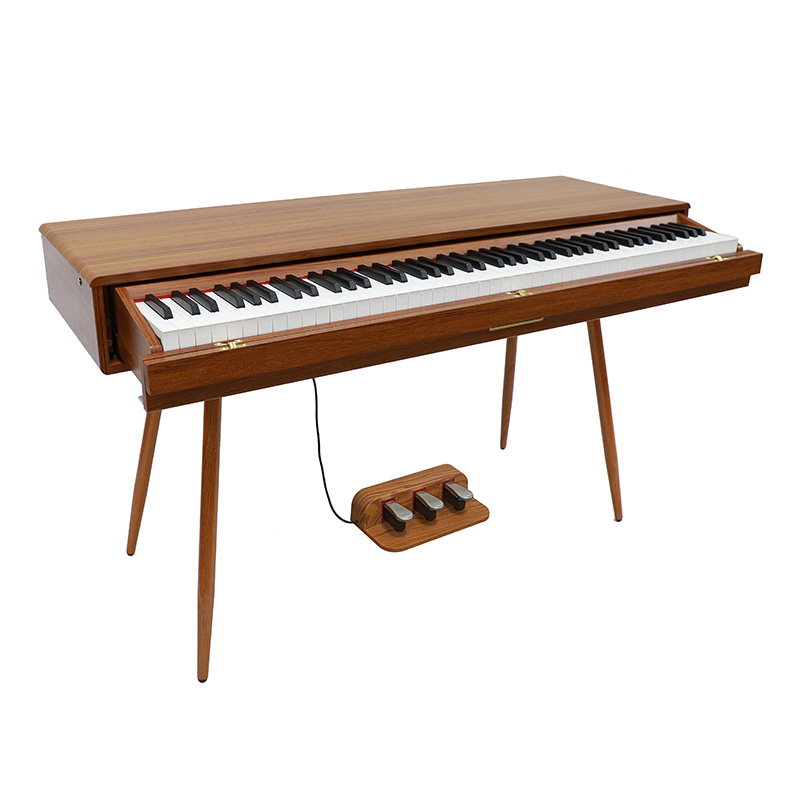In recent years, digital pianos have become a favorite choice among music enthusiasts worldwide. Their popularity is no coincidence—these instruments blend innovation, versatility, and convenience into one comprehensive package. In this article, we will explore the many reasons why digital pianos have captured the hearts of musicians and casual players alike.
1. Superior Versatility and Customization
One of the standout features of digital pianos is their versatility. Unlike traditional acoustic pianos, which are limited to a single tone, digital pianos provide an array of sound options. These include:
- Grand piano tones for classical pieces
- Electric piano tones reminiscent of the 1970s
- Orchestral instruments such as strings, horns, and percussion
This ability to switch tones allows musicians to explore diverse styles of music without needing multiple instruments. Additionally, digital pianos often come with customizable settings, enabling players to adjust volume, reverb, and other sound characteristics to suit their personal preferences.
2. Compact and Space-Saving Design
For individuals living in smaller spaces, the compact design of digital pianos is a significant advantage. Unlike their acoustic counterparts, which require substantial floor space and weigh hundreds of kilograms, most digital pianos are lightweight and portable. Some models can even be folded or easily disassembled for storage, making them ideal for apartments, dorm rooms, and studios.
3. Advanced Technology Enhances Learning
Modern digital pianos often feature state-of-the-art technology that makes learning to play more accessible and enjoyable. These features include:
- Built-in metronomes to develop rhythm and timing
- Recording functions to track progress and analyze performance
- Interactive learning apps that guide beginners step-by-step
- Light-up keys to teach beginners which notes to play
Such tools cater to players of all levels, from complete beginners to advanced musicians looking to refine their skills.
4. Silent Practice with Headphones
Another critical advantage of digital pianos is the ability to practice silently. By plugging in headphones, musicians can play anytime without disturbing others. This feature is especially beneficial for those who live in shared spaces or have neighbors nearby. The convenience of silent practice ensures that players can rehearse at their own pace, day or night.
5. Affordability Compared to Acoustic Pianos
Digital pianos are generally more affordable than traditional acoustic pianos, making them an accessible option for budding musicians. The cost savings do not stop at the initial purchase:
- No tuning required: Acoustic pianos need regular tuning, which can be expensive. Digital pianos stay in tune permanently.
- Lower maintenance costs: With fewer mechanical components, digital pianos require minimal upkeep compared to their acoustic counterparts.
These cost advantages allow more people to enjoy the experience of playing a high-quality instrument without financial strain.
6. Portability for Performers and Educators
For musicians who frequently perform or teach, the portability of digital pianos is a game-changer. Many models are lightweight and easy to transport, enabling players to carry their instrument to gigs, lessons, or rehearsals without hassle. Additionally, portable digital pianos often come with durable carrying cases for added protection.
7. Eco-Friendly Choice
Unlike acoustic pianos, which are traditionally made from large quantities of wood and other natural materials, digital pianos are often constructed with eco-friendly materials. This sustainable approach appeals to environmentally conscious consumers looking to reduce their ecological footprint.
8. Integration with Modern Technology
Digital pianos seamlessly integrate with modern technology, offering additional benefits such as:
- MIDI compatibility: Allows users to connect their piano to computers and other devices for music production.
- USB connectivity: Makes it easy to download and upload music files.
- Bluetooth support: Facilitates wireless connections to speakers and apps.
These integrations transform digital pianos into powerful tools for creativity, composition, and live performance.
9. Durability and Longevity
Digital pianos are designed for durability, often outlasting their acoustic counterparts. With fewer moving parts, they are less susceptible to mechanical wear and tear. This makes them an excellent long-term investment for musicians of all levels.
10. Accessibility for All Ages and Abilities
Digital pianos cater to a wide range of users, from young children to senior citizens. Features like adjustable height stands, lightweight keys, and guided tutorials ensure that anyone, regardless of age or ability, can enjoy playing the piano.
Digital pianos have revolutionized the music industry by combining innovation, accessibility, and practicality. Whether you are a seasoned performer, a beginner eager to learn, or simply someone who enjoys music as a hobby, a digital piano can enrich your musical journey. Its advanced features, affordability, and versatility make it an indispensable instrument for the modern musician.

